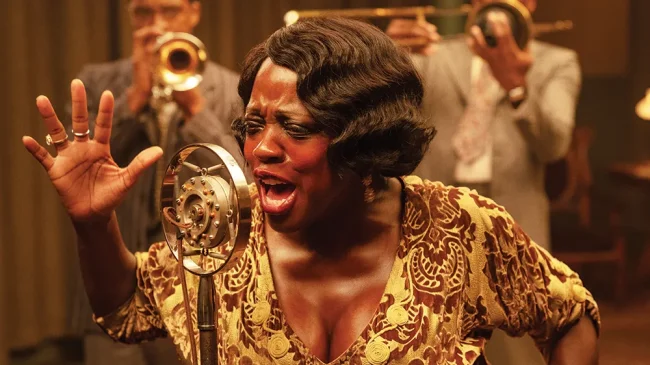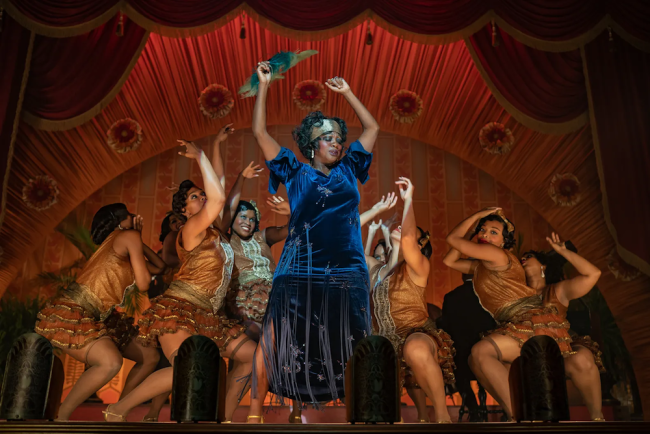Review by Aya Pfeufer
July 2024
“Ma Rainey’s Black Bottom,” directed by George C. Wolfe effectively portrays the struggles of jazz artists, the cost of ambitious goals, and racial tensions between White and Black Americans in Chicago during the 1920s. The Netflix film is an adaptation of the play by the celebrated August Wilson, the biopic portrays Wilson’s work and also highlights the intricate dynamics of power, control, and music in the United States.
“Ma Rainey’s Black Bottom” is centered around a recording session for Ma Rainey (Viola Davis), a very talented and versatile blues singer. In the film, Ma Rainey, known as the “Mother of the Blues,” is depicted as having an intense, strong personality, and being very assertive in managing her musical career. Davis’s performance is compelling, as she fully immerses herself into the character’s life, capturing Ma Rainey’s emotions.

This film was Chadwick Boseman, Davis’ co-star’s last film role. He portrayed the driven and skilled trumpeter Levee, a complex character. Boseman effectively embodies his character: it is an electrifying performance to watch. Levee has his ambitions and goals, he wants to rise to the top of the music industry and become recognized. Despite his drive for success, he also has an extremely short temper and frequently has anger outbursts, which have arisen from both racial oppression growing up and his childhood trauma. Levee has difficulties accepting the fact that his role in the studio is, as an accompanying musician and that there is limited flexibility in what he wants to play. He resents being told what to do, especially by Ma Rainey, and would rather just do what he wants when he wants. Because of his agenda, he often clashes with his fellow bandmates Culter (Colman Domingo), Toledo (Glynn Turman), and Slow Drag (Michael Potts). The narrative unfolds in a recording studio, and tensions amplify throughout the film. Many of the characters have their own story and struggles that capture the audience’s attention, like the death of Levee’s mother.
The director of the film, George C. Wolfe effectively uses dialogue as a driving force, to tell the story of the musicians. We see the African-American experience in the music industry and conflicts that arise in such an enclosed [recording studio] space. Further on in the plot, Levee reaches a breaking point, as the music producer rejects his aspirations, and does not want to record his songs. Ultimately, in the final scenes, Levee ends up taking out his anger on Toledo, after he accidentally stepped on his shoes.
MA RAINEY: “They don’t care nothing about me. All they want is my voice”
In other words, Ma Rainey is aware of the producer’s intentions. Despite their assertiveness, she remains firm with her integrity and resists exploitation. The film demonstrates the reality of power dynamics and race in society.
